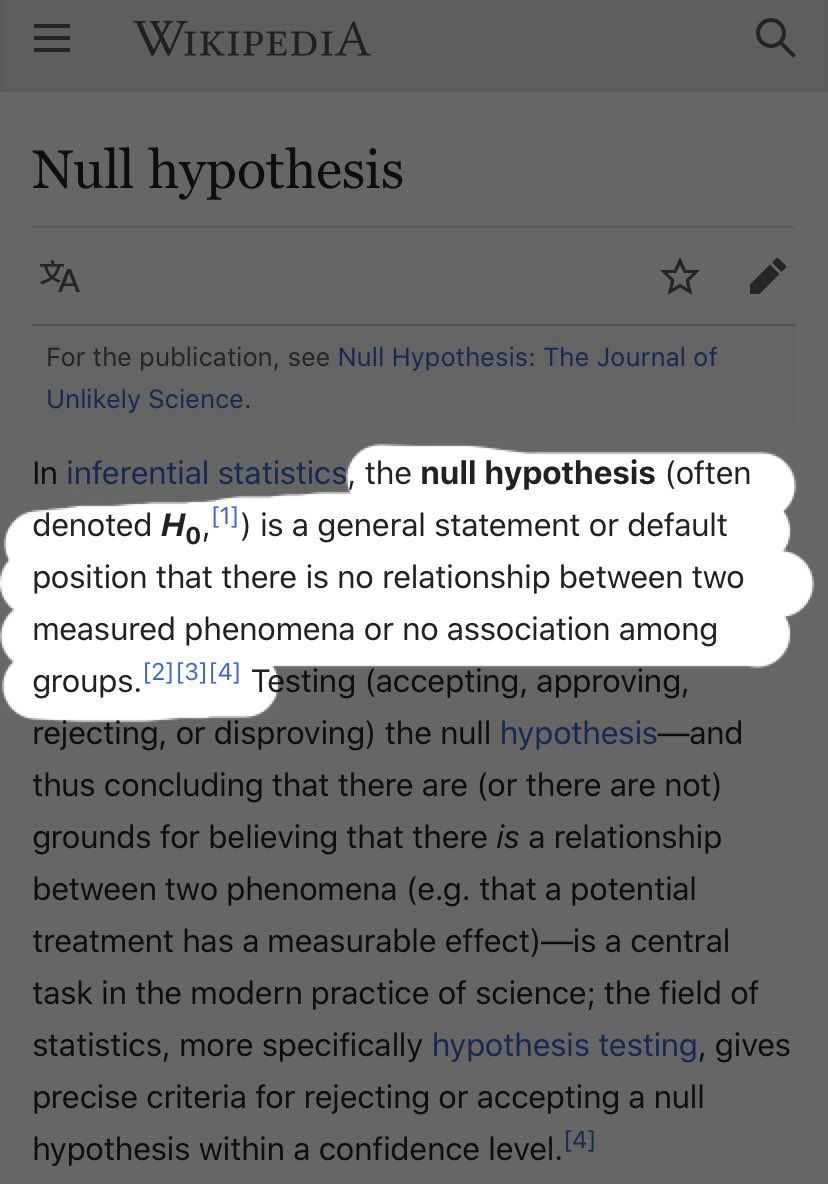-
@EmilyNix100 @h27kim I think there is a serious problem when econs (or anyone else) assume as a default position that discrimination doesn’t exist, but I’m not sure how much of the problem is with the terminology of “null hypothesis” (or the NHST framework, which has tons of real problems.) 1/
-
@EmilyNix100 @h27kim For example, the “null hypothesis” in tests of the effect of the minimum wage on unemployment would be no effect. But I don’t think most econs would say the onus is to prove that there’s an effect, because most of us think the basic theory predicts an effect. 2/
-
@EmilyNix100 @h27kim Although there’s real temptation to conflate “the null hypothesis” with “the hypothesis,” I think the problem you’re picking up may really stem from econ’s wide (not universal) ahistoricity, plus the long shadow that Becker casts over discrimination econ. 3/
-
@EmilyNix100 @h27kim But personally I think the NHST framework is valuable (though flawed). I think most—not all—of us strongly internalized the lesson that the null is not “the hypothesis.” And I don’t think the statistical tools let us decide to just flip things around. 4/4
-
@EmilyNix100 @h27kim P.S. I think ahistoricity as @PatBayerNC notes is a BIG issue here. @PatBayerNC/1268043140889444352 But what I’ve seen of ref reports and editor letters in econ and finance (my papers and others’) is that the critiques are generally NOT demand for “stronger” evidence for rejecting… 5/ @PatBayerNC/1268043140889444352
-
@EmilyNix100 @h27kim @PatBayerNC …a no-discrimination null. Rather, there is a lot of “we all know discrimination exists, so the contribution bar is around assessing mechanisms, determinants, remedies, etc.” 6/
 lukestein’s Twitter Archive—№ 8,664
lukestein’s Twitter Archive—№ 8,664